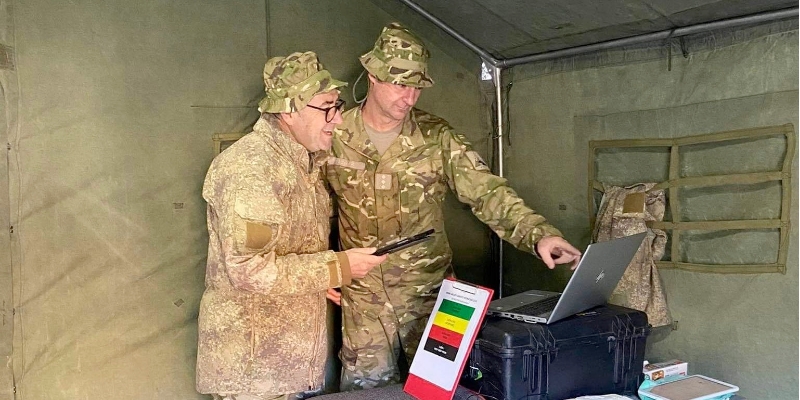Human Performance Cell
Rōpū Āheinga Tangata
Aims to optimise individual and force-wide performance through health, fitness, and performance initiatives.

What is the Human Performance Cell?
The NZDF Human Performance Cell (HPC) is a specialised group of uniformed (Army) human performance scientists. They work to enhance the operational outputs of the NZDF, by helping people thrive in the most challenging circumstances and emerge from stressful periods stronger, healthier, and eager for the next challenge.
Training support
Research. The HPC routinely provide support to units and teams facing performance challenges, through research. Results from this research is used to develop strategies to help enhance human performance and improve operational outputs.
Exercise Physiology. The HPC can create specific programmes to improve physical performance outputs that are needed in many military jobs. These are created for personnel needing to replicate high levels of strength, power and speed, while in challenging environments. They use specific scientific practice, based on a smarter needs approach.
Injury reduction & prevention. The HPC shifts the treatment focus to a performance health and wellbeing model of care. This enables people to be more effective in daily roles over the duration of deployments and in the daily training environment. Performance and recovery strategies are designed to meet environmental conditions and location. (This aligns with the 2015 Defence Health Strategy and the 2018 Health Model of Care.)
Stress. Operating in extreme environments can cause varying degrees of fatigue and injury resulting in declining physical condition. The HPC plays a key role in interpreting performance science, and providing initiatives that may be vital components of NZDF daily operation. High performance depends on how people renew and recover energy, how they expend it and how they manage work and daily life.
How the HPC can help you
- Provide expert advice and assistance in developing high performance unit initiatives.
- Military focused research capability.
- Enhance the human performance output of your unit, team or individual.
- Assess key physiological markers - musculoskeletal injuries, cardiovascular risk factors & body composition.
- Education on human performance factors such as nutrition, hydration, physical conditioning.
Requesting HPC support
The HPC team is based at the NZDF Human Performance Centre in Trenthan Military Camp, Wellington. The team generally maintain an open door policy and are always happy to have a quick chat about your human performance ideas, concerns, or potential support.
All inquiries and requests can be emailed to the HPC team. HPC requests are required to be approved through Joint Services Group (JSG) HQ to ensure they are in line with JSG/NZDF human performance areas of priority and have clear visibility.
Some of HPC's Research Projects
- Military boots causing lower limb injuries and the use of a tactical shoe to mitigate the effect of the military boot.
- Cervical muscle fatigue and proprioception when wearing a ballistic helmet.
- Tactical performance monitoring using sports GPS units.
- Monitoring body composition changes, hydration status and cognitive fatigue during a high intensity and high load military training exercise.
- The effect of sleep enhancement strategies to improve physical performance in the NZDF.
- The development of a Strategic Leaders health monitoring program (stress, fatigue, sleep, hydration, nutrition and exercise) to improve health outcomes.
- Examining a smarter approach to daily delivery of PT to improve human performance in the recruit and officer training spaces.
Helpful Resources
Sleep duration and physical performance during a 6-week military training course
Incidences and Causative Factors of Lower Limb Injuries in the New Zealand Army
Sport and Exercise Science New Zealand. Fostering excellence through, sport, human performance and exercise through evidence based practice.